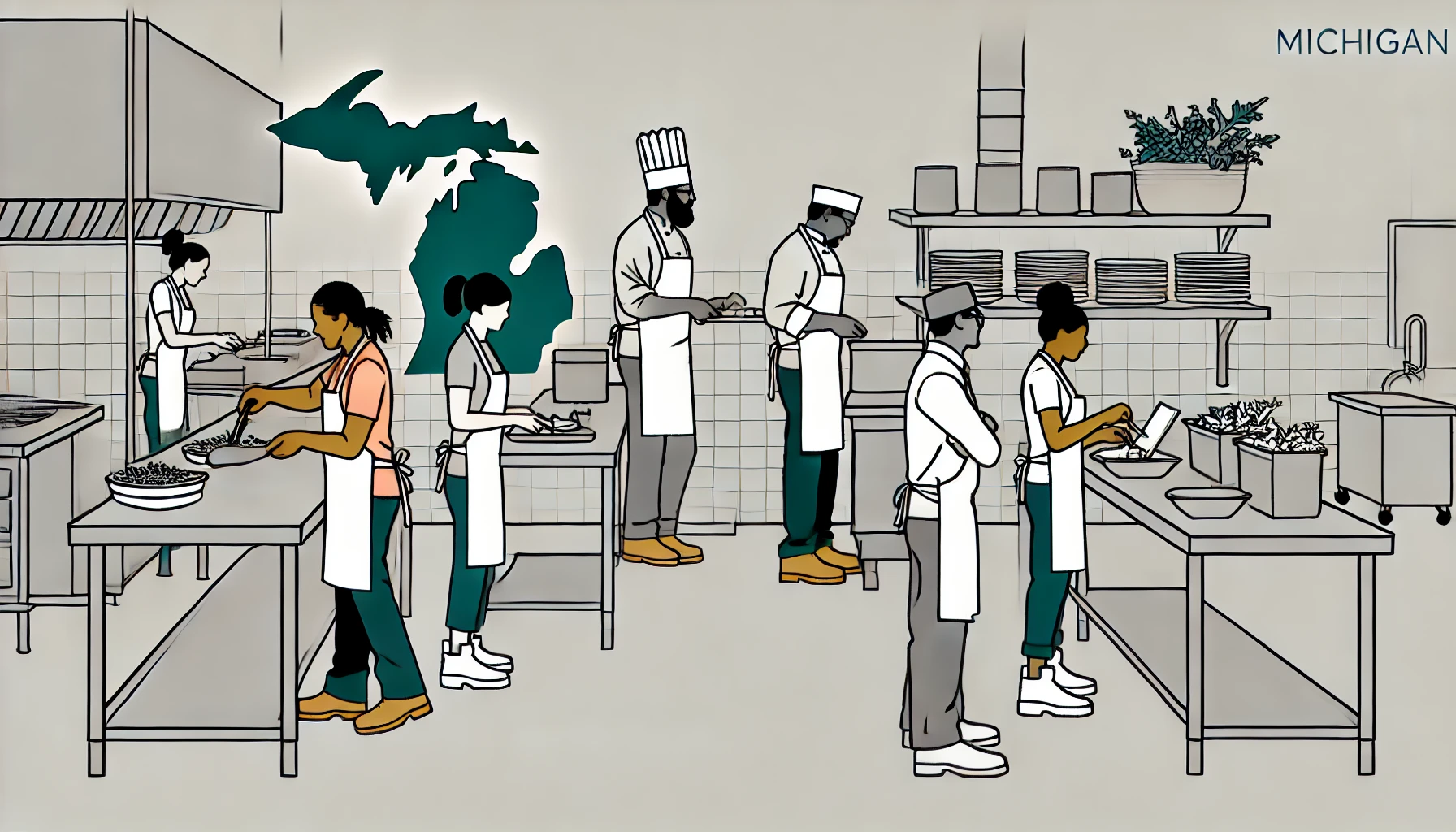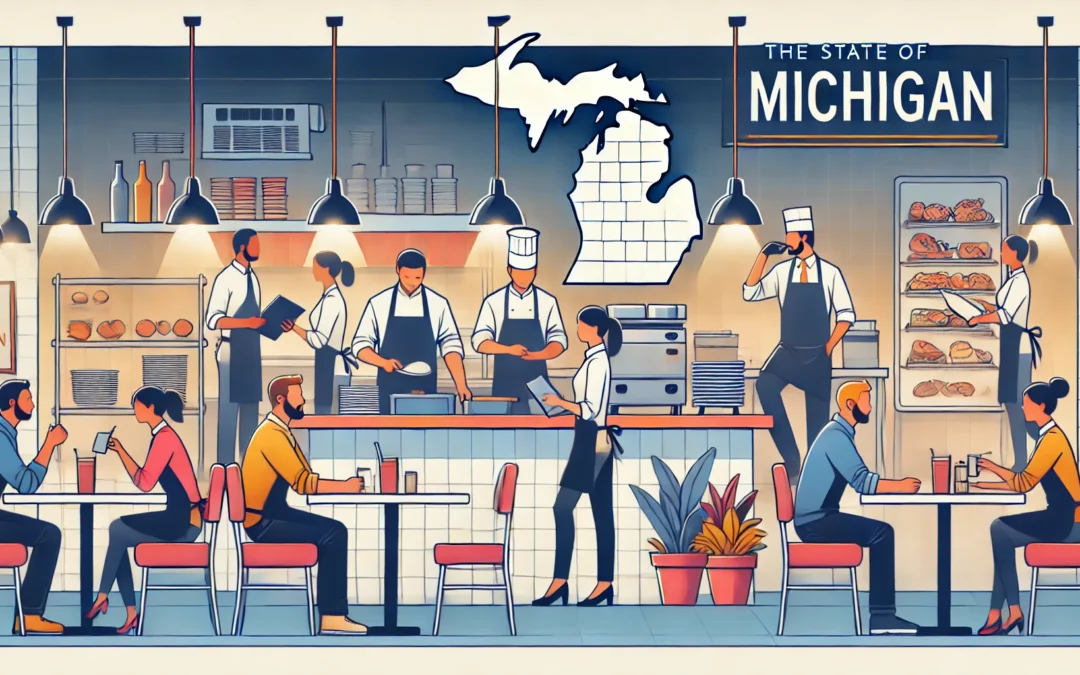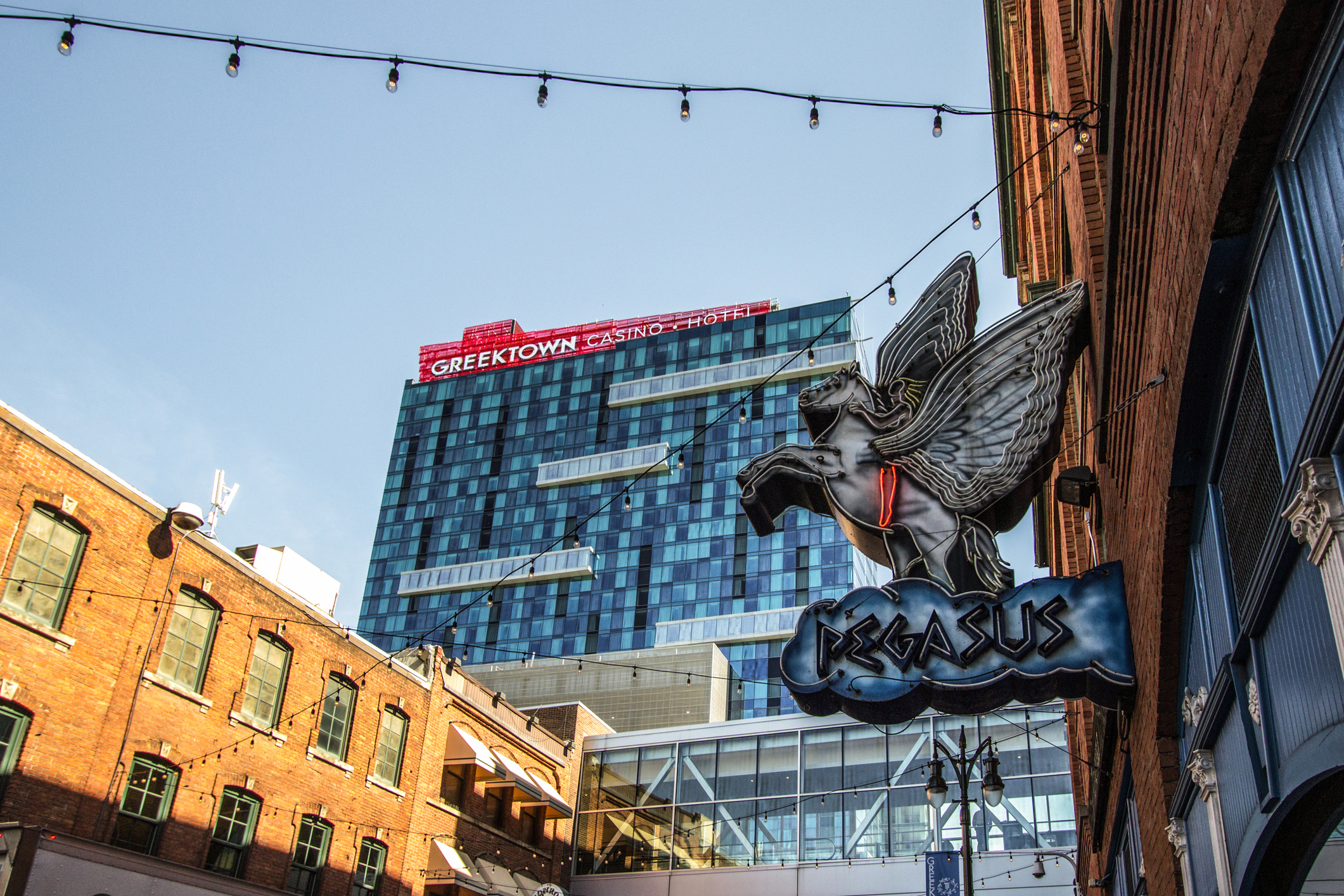Beginning February 25, 2025, restaurant owners in Michigan will have their labor cost of their tipped employees rise from $3.90 to $6.25 (12.50 x 48%) per hour thanks to a 2018 ballot proposal initiated by a group called Mothering Justice. This not only significantly increases the minimum wage for all businesses, but also creates a paid medical leave requirement for all employees of up to one week per calendar year.
This law is just now taking effect due to the Michigan Supreme Court’s decision to uphold the law despite the Michigan legislature’s attempt to amend it. That attempt was found to be unconstitutional by the Supreme Court’s liberal justices in a 4-3 decision that was delivered July 31, 2024. The MSC stated that the new law will take effect 205 days after the opinion, which is February 25th.
And it will keep on increasing. From 2025 through 2030, the tip credit which will start at 48% will be slowly eliminated. In 2030 food service establishments will be paying their tipped employees the same minimum wage as everyone else which is estimated to be $15.00 an hour. The actual minimum wage will change every year based upon inflation adjustments.
The previous minimum wage law allowed restaurants to pay their food servers and bartenders a lower minimum because these employees are tipped by their customers.

How will this Change the Restaurant Industry and Their Consumers?
Nearly every employee in Michigan will be entitled to paid medical leave. This will significantly increase the labor costs of restaurant’s who currently do not generally have paid time off for being sick.
These extra costs will certainly be passed to consumers. Restaurants, many of whom are already operating on small margins, will respond by increasing menu prices. The salmon salad priced at $15 you may have for lunch, may now be $24.95.
The Michigan Paid Medical Leave Act
Every employee must receive a minimum of one hour of paid medical leave for every 30 hours worked, up to a maximum of 72 hours per benefit year.
A “benefit year” means any consecutive 12 month period selected by the employer to calculate the employee benefit. A typical start of the benefit year would be an employee start date. Basically, if an employee works an average of 30 hours a week, or more, they are entitled to one week or five days of paid medical leave.
What is “Medical Leave”?
Medical leave could mean almost anything. An employee can be treating a physical or mental health illness, injury or health condition. It includes preventative medical care – like physical therapy. The qualifying conditions are very broad. Even if a family member requires medical care for a physical or mental illness qualifies.
Victims of domestic violence, including family members, are permitted paid leave for psychological care, to relocate or obtain an attorney or participate in any criminal or civil legal proceedings.
Penalties
An employer must retain records of the amount of paid medical leave each employee receives for a minimum of one year. An employer who fails to provide paid medical leave or maintain the required records can be fined up to $1,000.00 for each occurrence.
Required Posting
An employer shall display a poster at the employer’s place of business, in a conspicuous place accessible to eligible employees, that contains all of the following information:
(a.) The amount of paid medical leave required to be provided to an eligible employee under this act.
(b.) The terms under which paid medical leave may be used.
(c.)The eligible employee’s right to file a complaint with the department for any violation of this act.
Do Restaurants Have to abide by the Paid Medical Leave Act Too?
Yes, all employers with more than two employees, including food service establishments. This impacts an industry that largely refuses paid medical leave.
What Can Restaurants Do?
The Michigan Restaurant and Lodging Association predicted that one in five full service restaurants are likely to close due to the impact of this new law. And with it, 40,000 to 60,000 jobs will be lost, mostly food servers.
Experts believe there will be more tip pooling arrangements. Tip pooling is a practice where restaurants collect all or part of their employees’ tips and redistribute them among either tipped employees or all employees. When divided amongst all employees, it will permit the reduction of the non-tipped wages which can offset the tipped wage increase. It can be mandatory or voluntary.
Basically, all tipped employees contribute 100% of their tips, and then the total is divided by the total hours worked. Next, each employee’s hours are multiplied by that figure to determine how much they receive. For example, if tipped employees earn $1,000 in tips over a day and work a total of 20 hours, that employee would receive $50 multiplied by their hours worked.
Get in Touch With Us






